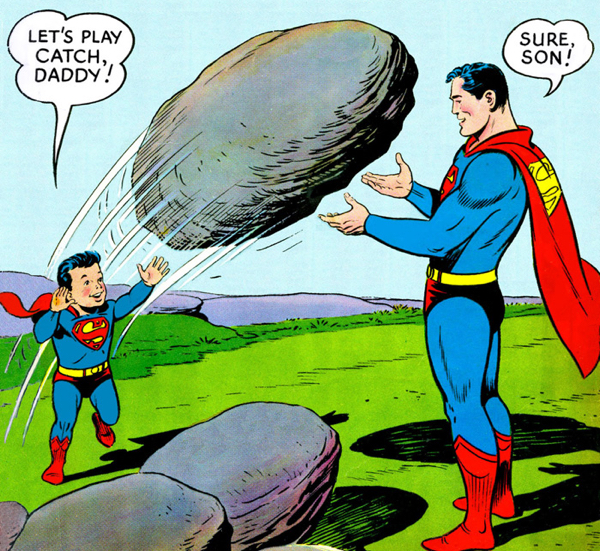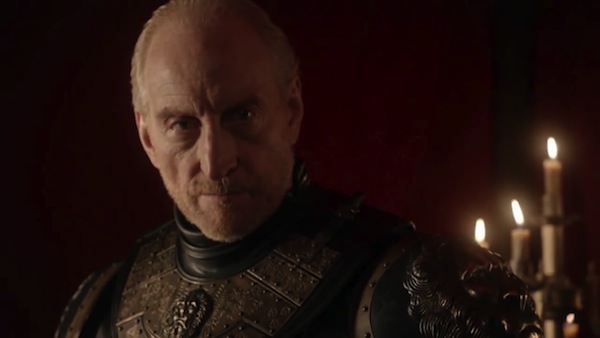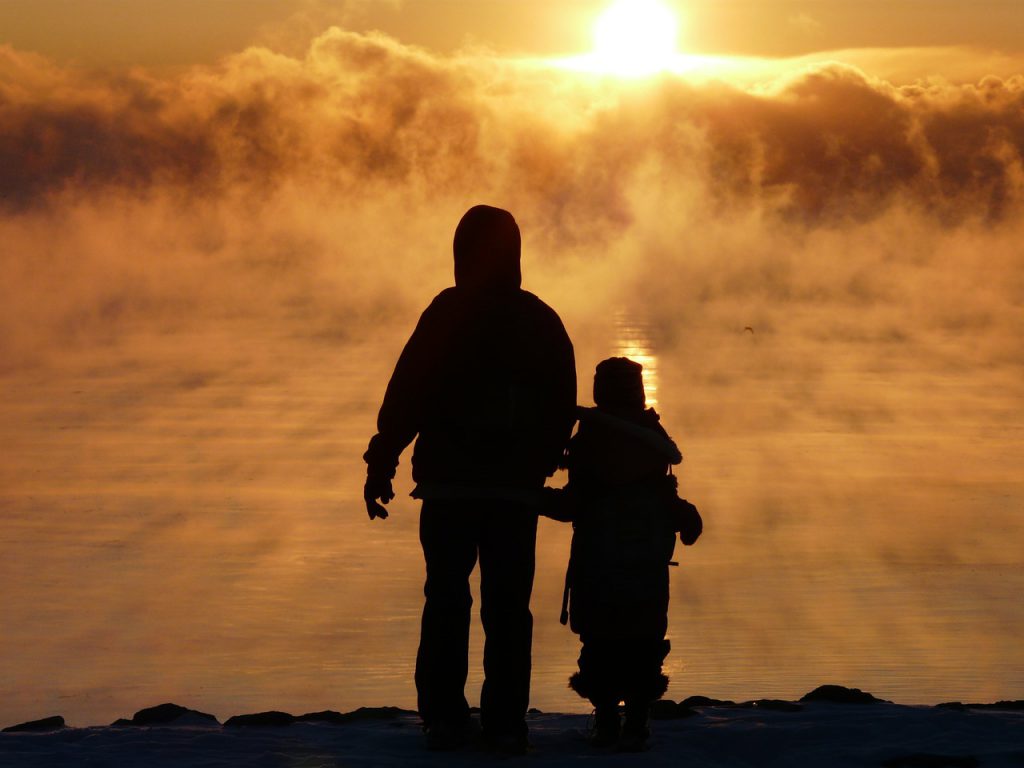Five Super-Dads Who Helped Their Kids Become Heroes
Epic adventure sagas tend to push the hero's parents off stage before the main action begins. After all, how dramatically bold can a protagonist be if they're always pausing the narrative action in the middle of a crisis to consult mom and dad for advice, right? And yet, over and over again, we see that that parental influence–even from off-stage parents–is central to a child's growth into a hero. So in honor of Father's Day this weekend, here are five super dads who worked hard to make sure their kids would be ready someday to save the world.

Jean-Luc Picard: In Star Trek: The Next Generation, Captain Picard reminds us more than once that he’s not comfortable around children. Yet he takes on the role of surrogate father to one of the most potentially dangerous children who’s ever walked a starship deck. Namely, Data, the super-strong, hyper-intelligent android who can wipe the floor with a trained Klingon warrior, yet doesn't fully understand basic human emotion and behavior. Picard takes the time to become a wise and empathetic mentor, answering Data’s frequent questions about human nature with thoughtfulness and respect. All dads can borrow a page from Picard’s book: When it comes to a child’s curiosity, no matter their age, there’s no such thing as a stupid question. Take their “Why?” seriously.

King T’Chaka. The sovereign head of state of the African nation of Wakanda, and the father of T’Challa, Marvel Comics' Black Panther, T’Chaka is as nurturing and open-hearted a dad (or king) as they come. He gives his child the model by which a powerful adult behaves in the world: In his monarchical role as his nation’s executive and symbolic parent, T-Chaka works hard to protect his people from the violence and exploitation that he knows surrounds them. And in his literal role as an actual parent, he teaches T’Challa how important it is to respect the preciousness of life before all else. As we see in Marvel's recent Captain America: Civil War movie, that lesson is what ultimately pulls the Panther back from the edge of vengeful obsession to dedicate himself to true justice and compassion.

Professor Utonium. After he creates three super-powered little Powerpuff Girls in his laboratory, the brilliant but clumsy professor in this Cartoon Network series gladly takes on the obvious paternal tasks of packing their school lunches and tucking them in to bed at night. But he also accepts the more nuanced responsibility of mentoring and supporting Blossom, Bubbles, and Buttercup in their superheroism, as their abilities are repeatedly called upon to save the people of Townsville. Some parents allow their natural protective instincts to get in the way of their kids’ developing strengths as impressive people who’ll have to find their way in the world. Not Professor Utonium. Because he knows that even kindergartners have the power to save the day sometimes.
Bilbo Baggins. The story of the One Ring was Bilbo’s story, as far as he knew. The titular character of J.R.R. Tolkiens' The Hobbit picked up the magic talisman when he was young; he quietly held its power in his hand through most of his adult life. He literally wrote a book, There and Back Again, telling that tale with himself as protagonist. But then he reached what we would consider the age of elder wisdom—and he realized that he didn’t know what to do with this great power he’d come to possess. Bilbo could have set out to try and shape the world to his liking with that power. Instead, with a little help from the wizard Gandalf, Bilbo concluded that he’d already had his day in the sun. Bilbo knew he didn’t have the right sort of strength to keep wielding the Ring, so he decided to step back and let his nephew and foster son, Frodo, pick up the journey with fresh resolve and a new perspective. And because Bilbo was willing to let the next generation take up its own influence in the world, the evil lord Sauron was ultimately stopped.

Jonathan Kent. The reason Zack Snyder’s two Superman movies make so many fans pull out their hair is that he somehow misses the fact that Superman’s heroism comes not from his powers, but from his upbringing. We go back to the 1978 Superman movie for the scene that sums it all up: Teenage Clark is frustrated because the high school football players–who have no idea of his true abilities– are laughing at him for being weird. Clark's father listens sympathetically, and then says this: “You listen to me. When you first came to us, we thought people would come and take you away because, when they found out, you know, the things you could do—and that worried us a lot. But then a man gets older, and he starts thinking differently and things get very clear. And one thing I do know, son, and that is you are here for a reason. I don't know whose reason, or whatever the reason is… I don't know. But I do know one thing. It's not to score touchdowns.” With that, Clark’s Pa has, and shares, the profound clarity that the more recent version lacks: one’s purpose in life is more important than one’s fear. And that—not alien biceps and eye lasers—is why Superman is so super.
Valya Dudycz Lupescu and Stephen H Segal are the co-authors of Geek Parenting: What Joffrey, Jor-El, Maleficent, and the McFlys Teach Us about Raising a Family, available now.


Stephen H. Segal and Valya Dudycz Lupescu
Valya Dudycz Lupescu and Stephen H Segal are the co-authors of Geek Parenting: What Joffrey, Jor-El, Maleficent, and the McFlys Teach Us about Raising a Family, available now (Quirk Books, 2016). Stephen is the child of geeky parents, an award-winning editor, designer, and writer, and the former editor in chief of the Philadelphia Weekly. His revamp of Weird Tales magazine won a Hugo Award in 2009; his book Geek Wisdom: The Sacred Teachings of Nerd Culture was published by Quirk Books in 2011.Valya is raising three delightfully geeky children. Her debut novel, The Silence of Trees (Wolfsford Press) reached the Amazon Top 10 in historical fiction in 2011. She is the founding editor of the literary journal Conclave: A Journal of Character and co-creator of the comic book Sticks and Bones.



